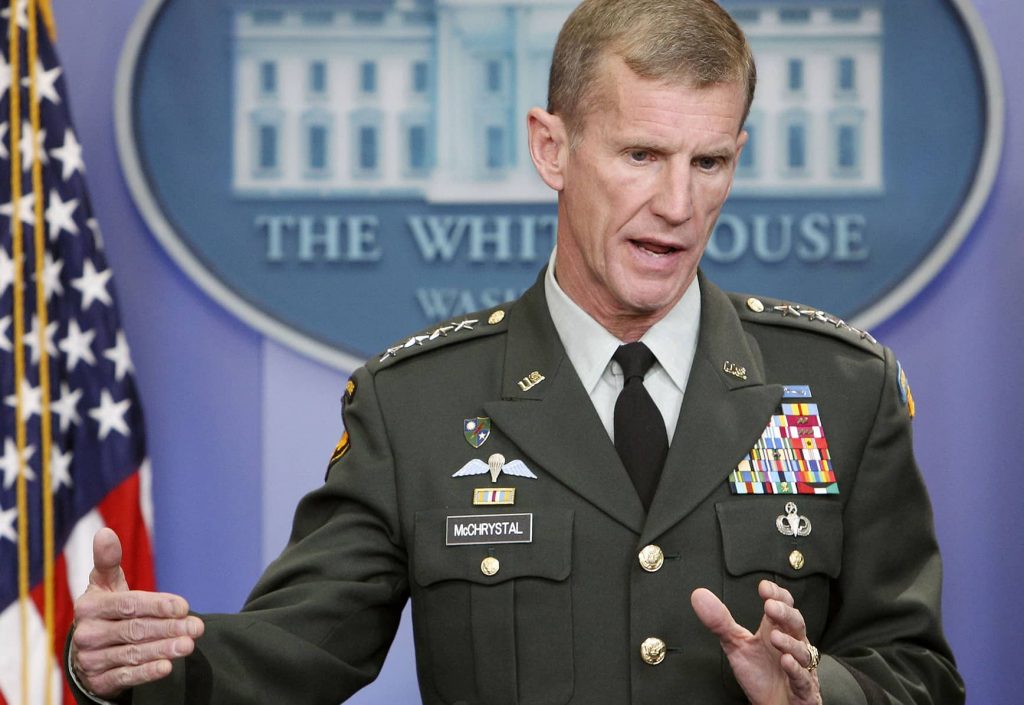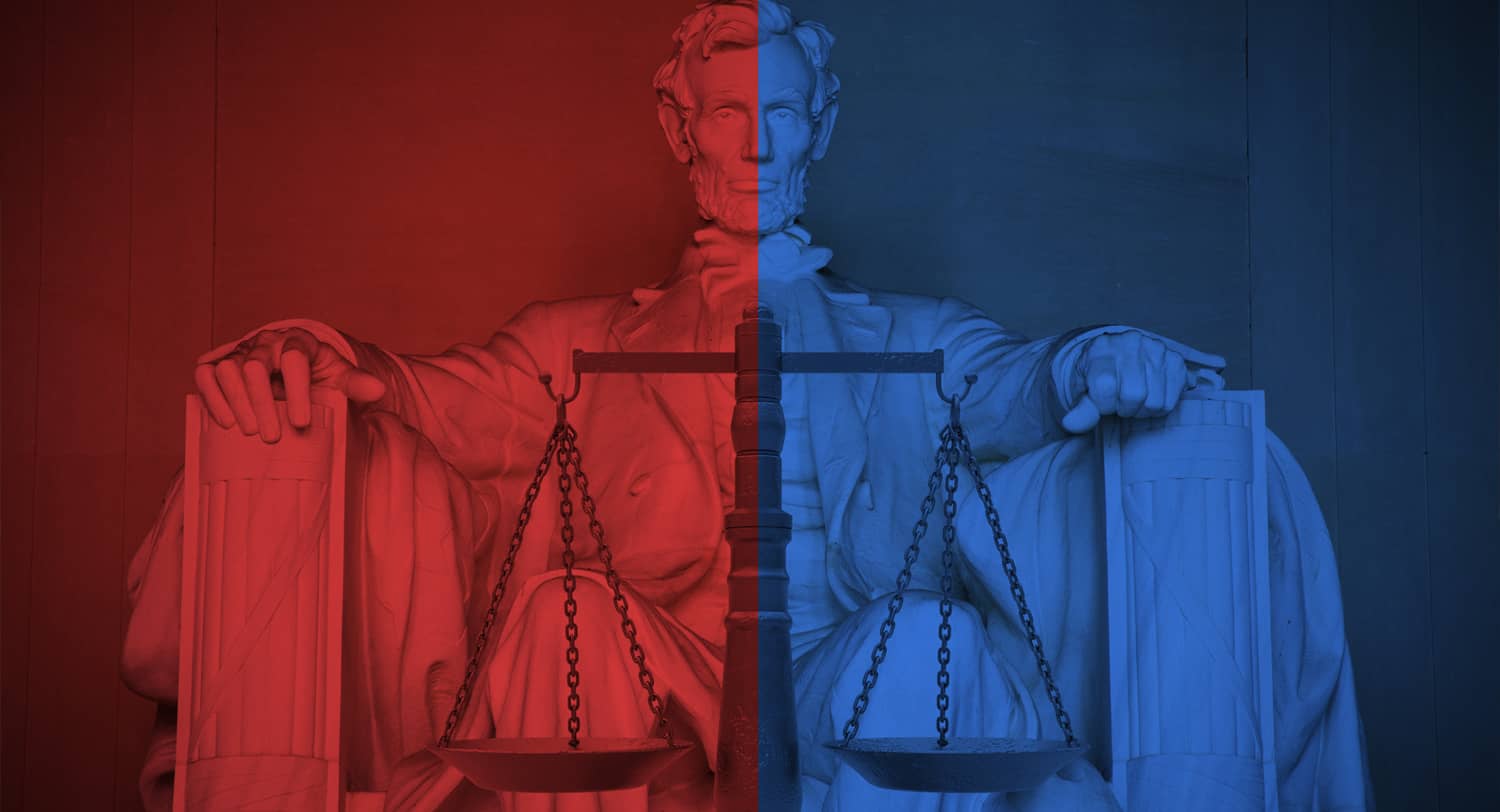In our era of division, it is not uncommon for political leaders in the United States to cite the rhetorical prowess of Abraham Lincoln, who even before his presidency, stared down the barrel of a nation torn in two. Perhaps most famously, we repeat the refrain that “a house divided against itself cannot stand,” bringing into modernity the notion that a lack of shared purpose can wreak havoc on the health of a country and its citizens.
Little is said, however, about Lincoln’s follow-up statements, in which he makes the case that for slaveholders and abolitionists, neither can live while the other survives. As for the fate of the nation, he argued that “it will become all one thing or all the other.” In the context of today, we might interpret this as an argument for unity above all else. Calls for conversation, connection, and even consensus are everywhere in the news. Both the American Congress and the Israeli Knesset were designed to help navigate their respective countries through the changing global landscape, but today, they appear to exacerbate divisions. It would be easy to draw the conclusion that things would be better without any dissent in our relationships, personally and politically. Why else would we all hear ourselves sighing and musing aloud, “why can’t we all just get along?”
However, it is important to remember that Lincoln was not anti-dissent, but rather, was pro-debate. This is a nuanced but critical distinction, especially for our elected leadership. In times of conflict, it seems that every nation hopes to enter the geopolitical sphere with an entirely unified internal state. While there is, in fact, a deep and meaningful connection between domestic and international politics, unanimity is neither possible nor optimal for a country and its decision-makers. In fact, this drive for consensus can lead the world into dangerous territory, where global leaders and citizens are both susceptible to falling into what we call the “unity trap.”
We need to look no further than our own history to see the consequences of prioritizing conformity over turning the kaleidoscope to see every perspective, and recognizing that a level of disagreement will be inevitable. Scholarship within social psychology, political science, and communications has long recognized the danger of the phenomenon of “groupthink.” Studies pioneered by Irvin Janis showed consistently that the higher the esprit de corps was within a team (particularly a “policymaking in-group”), the more that the independent critical thinking of that team eroded, giving way to a shared tunnel vision. The consequences, too, can be dire; as that in-group locks arms more closely, it is more willing and able to make decisions that are “irrational and dehumanizing” to those outside of the inner circle.
When we contemplate the role and image of groupthink in our lifetimes, we often think about countries and spaces where human rights are most curtailed. In particular, the rise of the Third Reich and the questions raised in the Nuremberg trials forced many people to grapple with the powerful forces of bigotry, authority, and yes, conformity, which shaped the attitudes of Nazi soldiers and ordinary Germans who did not speak up against Hitler’s regime. Today, in picturing the homogeneity of North Korea and its internal cohesion at the expense of any relationship with the outside world, we are simultaneously saddened and quick to cast judgment. These actualities seem far outside what the Western world would, and could, ever find acceptable.
However, to fail to look inwards would be to forget our own history, particularly during times of national stress. The “we can do it” attitude of Rosie the Riveter and all the talk of togetherness within the U.S. during the Second World War should not erase the atrocious internment of Japanese-American citizens after the tragedy at Pearl Harbor. This decision was not simply an Executive Order, but was affirmed across all three branches of the U.S. government, made particularly salient by the Supreme Court’s willingness to uphold the order in Korematsu v. United States. Only one judge, Frank Murphy, had the courage to call the decision what it was – a legalization of racism. While Korematsu and Japanese internment has been widely repudiated by politicians today, it did not stop the hasty passage of the Patriot Act in the wake of the attacks of September 11th, 2001. Both of these acts increased surveillance and opportunities to punish vaguely-defined “suspected terrorists.” Civil rights activists continue to decry the violation of due process in prisons like Guantanamo Bay, much as they did during the development of internment camps sixty years prior. The parallel is both disappointing and sobering.
In the West, and particularly amongst democracies, we are not immune from groupthink; and terribly often, in any context groupthink disguised as unity can cause nations to make short-sighted and prejudiced decisions. Under the right circumstances, anyone can fall quickly and suddenly into the unity trap.

At least superficially, the decisions to invade both Afghanistan and Iraq, too, were driven by a single-minded desire to come together as a global community, one which would reject terrorism, protect basic human rights, and develop a shared set of democratic values. But in practice, as always, decisions are more complicated. As a newly promoted major general, I left Afghanistan in the summer of 2002 and reported to the Pentagon to serve on the Joint Staff as Vice Director of Operations. When I did, I was immediately surprised to find ongoing planning for operations in Iraq. After 9/11 the rationale for Operation Enduring Freedom in Afghanistan was compelling, but Iraq felt different. Saddam Hussein was a despicable tyrant but was neither aligned with Islamic terrorists like al-Qaeda nor a credible threat to the West.
As with many decisions driven by the “rally around the flag” argument, our approach to Iraq proved simplistic. In the following months, a military invasion of Iraq was planned, resourced, and ultimately executed – with little apparent debate or deep reflection. With 9/11 still imprinted on our national consciousness, the inclination and pressure to align with the team were powerful – and they so often are.
So, how can we avoid the fall? Knowing our history, what are the tools that we can leverage to see danger ahead, and head it off at the pass? How can we protect ourselves against – well—ourselves? There is no simple answer. Our intention is not to offer the “Goldilocks”solution – “not too much division, not too much consensus, but a specific and unknown ratio that is just right” – for these deeply human challenges. Instead, we recognize that any healthy country is carrying out a dynamic and never-ending balancing act, requiring clear-eyed assessments of where the world is today, and where we want to go.
But to begin to reset the scales, where do we begin?
The enemy of groupthink is critical thinking and deliberate evaluation of the perspective of others. We must create and implement systems and processes that, above all else, encourage debate. Dissent and open communication are the best methods to strike a careful balance between unhealthy division and unhealthy consensus. As a starting place, we must have a commitment to facts. We can only have reasonable and productive conversations amongst ourselves if we are willing to grapple with what science and evidence tell us to be true. While it does seem daunting to apply this standard to the twenty-four hours news cycle, every collective change has an individual beginning. If we begin to question what we hear and investigate the origin of stories, we will surely find ourselves more aligned on what it is we’re arguing about; frankly, that’s not a bad start.
However, we will also need to work to make emotional changes. In verifying information and having open conversations, we must all seek to be skeptical, but open-minded. The mark of an educated mind, Aristotle once said, is to be able to hold two contradictory ideas in one’s mind at the same time. We must all actively cultivate the empathy to hear – and more importantly, to understand—the fact-based perspective of someone with whom we disagree. As history has taught us, if we fail to look inward, we are doomed to repeat our mistakes and only broaden our blind spots. Simply investing emotional bandwidth in understanding our feelings around a given issue can go a long way.
What can this look like, in practice? We can turn back to Lincoln, who was both a lively and skilled debater at the time he was elected to the presidency. Facing a country split in half, it may have been tempting to create a cabinet which all had a shared understanding of Lincoln’s plan for managing a series of unprecedented secessions. However, Lincoln recognized that the cabinet’s ultimate ideal should not be about how to save the union, but instead the prioritization that the union must be saved.
It was with this knowledge that Lincoln built his Team of Rivals, a cabinet which was comprised of his own political opponents and competitors. The expectation was clear from the start – no individual member of the cabinet would find a duplicate of himself anywhere else, and should be prepared to defend his perspective with the best available and most compelling evidence. Every decision, then, was the product of a mosaic of opinions and ideas, driven by a leader committed to making choices bolstered by skepticism and open-mindedness. Compare that mental image of Lincoln’s cabinet to the photos of Russian President Putin sitting alone at a long, empty table, listening to no one’s counsel.
As Lincoln showed us, to stay out of the unity trap, we will have to develop a shared commitment to fact and a collective willingness to stop sensationalizing fiction. It is not impossible. Immediately prior to Russia’s invasion of Ukraine, the West worked together to declassify and share intelligence faster than ever before. This willingness to cooperate around and amplify the truth undercut even the most powerful disinformation machines, squashing rumors before they even had the opportunity to catch fire. If we are to have any geopolitical stability, we need to develop a sense of internal stability – not through common ideology, but through a common mission and set of values. Only through our own willingness to be skeptical but open-minded can we begin to walk a shared path to a world governed by a true consideration of all voices. Whether we are a house divided, a house united, or something in between, we all share this structure; whether we like it or not, it’s up to us to keep it standing.



